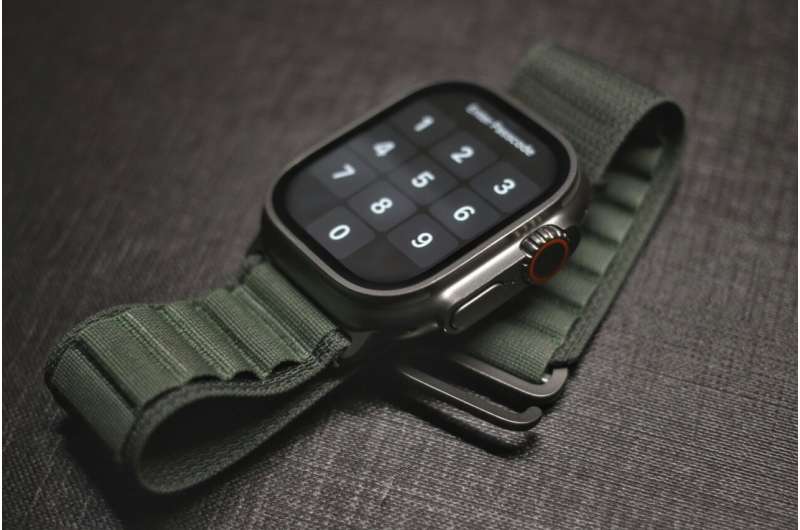Whether receiving mental health treatment or not—and half of all trauma-exposed former soldiers do not, researchers say—the ex-soldiers may benefit from wearing a Fitbit or an Apple Watch around the clock in coordination with their health care provider.
Data from such remote measurement devices could help doctors and therapists see the presence, and predict the exacerbation, of serious symptoms of post-traumatic stress disorder, or PTSD, according to a new study of dozens of U.S. veterans over a period of three months. The findings are published in the journal PLOS One.
In the study, a group of 74 recently demobilized veterans agreed to wear a device on their wrist 24/7 as well as self-report through a brief daily questionnaire. The goal was to observe how the use of real-time data collected passively (through remote measurement) and actively (via a survey) could help with routing trauma sufferers to behavioral health therapists and other health care specialists as needed, says Shaddy Saba, assistant professor at the NYU Silver School of Social Work and a co-author of the study looking at PTSD and cannabis abuse among veterans.

